Virtual Soil Science Learning Resources group includes scientists, students, and multimedia experts from several postsecondary institutions across Canada. Names of the team members who either worked on content or multimedia development are shown on this page. Number of team members has grown over the years and we hope that the trend will continue in years to come.
Content Advisers
 Dr. Maja Krzic
Dr. Maja KrzicFaculty of Land and Food Systems / Faculty of Forestry, University of British Columbia, Vancouver, BC.
Maja is a Professor of Soil Science with a joint appointment in the Faculty of Land and Food Systems and Faculty of Forestry at UBC. Her current research focuses on development of soil quality indicators for assessing management impacts on grassland soils, forest soil response to severe mechanical disturbance, and soil compaction susceptibility. In her work, Maja integrates research, teaching, and community education through application of information technology. In 2006, she received the UBC Killam Teaching Award for her innovative efforts in teaching.
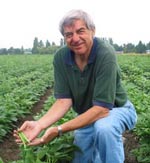 Dr. Art Bomke
Dr. Art BomkeFaculty of Land and Food Systems, University of British Columbia, Vancouver, BC.
Art was raised on a small farm in Illinois, did his university education in that state at Southern Illinois University (B.Sc. and M.Sc.) and the University of Illinois (Ph.D.) and immigrated to British Columbia almost four decades ago. Art’s educational background is in Agronomy, specifically soil and crop management; and he has taught courses on soil fertility and management since his arrival at UBC. Art has also had opportunities to explore social dimensions of agricultural systems. Since coming to UBC, he has conducted research on both inorganic and organic fertilization, nitrogen cycling, and cropping systems. Currently, his group is studying on-farm use of composts, symbiotic nitrogen fixation in Yukon agriculture, soil health indicators and the City of Vancouver’s foodshed. Most of the work is done in partnership with farmers and other participants in food systems. Art is a strong proponent of small-scale agriculture, including organic and urban systems, and the need to strengthen community food systems. His contribution to the Faculty of Land and Food System’s core Land, Food and Community courses exemplifies this commitment. Finally, Art serves as the Graduate Advisor for the UBC Soil Science Graduate Program.
 Kent Watson, M.Sc.
Kent Watson, M.Sc.Natural Resource Science Program, Thompson Rivers University, Kamloops, BC.
Kent specializes in Geographic Information Systems (GIS), Global Positioning Systems, and Soil Science. He teaches Introduction to Study of Soils (FRST 200) and Geographic Information Systems (NRSC 223) and Forest Mensuration (NRSC 211) courses. He is also president of International Remote Sensing Surveys Ltd., which specializes in aerial photography, soil and vegetation surveys, remote sensing, photo interpretation and mapping using GIS. Kent has also written an illustrated field guide for describing soils in the field. The manual is referenced as follows: Watson, E.K., 2007. Soils Illustrated—Field Descriptions, First Edition. International Remote Sensing Surveys Ltd. 426 Azure Place, Kamloops BC V2E 2R1. 280 pp. and 259 annotated colour photographs and soil profiles.
 Dr. Paul Sanborn
Dr. Paul SanbornEcosystem Science and Management Program, University of Northern British Columbia, Prince George, BC.
Paul has worked and studied in the field of soil science for 30 years. His educational background includes an M.Sc. (University of Alberta) and Ph.D. (UBC) degrees, as well as postdoctoral research. His related work experience involves soil survey, consulting, and applied forest soils research in BC and Alberta. Paul joined UNBC in 2002, where he teaches introductory soil science and advanced courses in soil genesis and forest soils. His current research emphasizes the role of soil as a recorder of environmental change, and involves field areas in northern BC, Yukon and the Northwest Territories. More information about his work is available at his website.
 Dr. Stephanie Grand
Dr. Stephanie GrandUniversity of British Columbia, Vancouver, BC.
Stephanie has received her PhD from the Resource Management and Environmental Studies program at UBC on the effects of logging on soil organic matter, soil chemistry and mineralogy. Stephanie has been involved in post-secondary education for about five years and has helped develop educational material used in lab manuals and various course websites. She has taught two soil science courses for UBC in the past and is currently an instructor at the University of Denver for distance education courses, including Introduction to Natural Resource Management and Impacts of Recreational Use. Stephanie is currently a Lecturer at the University of Lausanne, Faculty of Geosciences and Environment, Lausanne, Switzerland (see https://applicationspub.unil.ch/interpub/noauth/php/Un/UnPers.php?PerNum=1175035&LanCode=8 )
 Julie Wilson, MSc
Julie Wilson, MScFaculty of Land and Food Systems, University of British Columbia, Vancouver, BC.
Julie Wilson joined the VSSLR consortium in 2012 and currently acts as the Project Coordinator for Soil4Youth, and content developer for a new project (still under development), Geotagging – Augmented Reality Tool for the VSSLR. She brings an interdisciplinary skill set to environmental research, with a specialty in freshwater resources, watershed planning and management, and more broadly in environmental science. More recently Julie has become involved in science communication and outreach beyond the academic community. Julie is the Science Communication Research Coordinator of TerreWEB, an NSERC CREATE program at UBC. This program focuses on training graduate students researching global change to engage different audiences about their research using the wealth of tools and media available today, including online tools such as blogging, social media, games and video, but also emergent media, where students are using media in novel ways never done before.Julie received a BSc in Science at UBC, majoring in Environmental Science with an Ecology specialization. She completed her MSc in the Resource Management and Environmental Studies program at UBC in 2011, and her research focused on watershed cumulative effects assessment in a heavily developed watershed of the Lower Fraser Valley. She has held several RA positions including most recently at the University of Saskatchewan, where she worked on watershed assessments of some of Canada’s major river basins (including the Athabasca River and the Yukon River).

Khalil Walji, MSc
Consultant at UN-FAO, Rome, Italy.
Khalil joined the VSSLR consortium in 2017 and currently acts as the Project Coordinator for the project “SoilWeb200: Open Resource for Authentic Student Learning.”
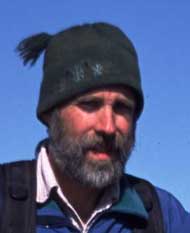 Scott Smith
Scott SmithSoil Scientist, Agriculture and Agri-Food Canada, Summerland, BC.
Scott’s research interests include pleistocene paleoenviromental reconstruction, thermal regimes of permafrost affected soils, soil survey, agriculture capability and ecological mapping, development of national agri-environmental indicators, assessment of crop water requirements in the Okanagan Valley in response to climate change, GIS modeling of land use, climate and landscape processes, and development of spatial databases in support of entomological research. He is the National Study Leader with the Land Resource Inventory.
 Dr. Suzanne Simard
Dr. Suzanne SimardProfessor Faculty of Forestry, University of British Columbia, Vancouver, BC.
Suzanne is interested in soil processes, particularly those governed by mycorrhizal fungi and rhizosphere microbes, that affect plant community dynamics. Her current research focus is on the role of mycorrhizal networks in regeneration, competition and diversity in plant communities, and the carbon, nutrient and water flux dynamics that regulate plant and soil patterns. Suzanne is investigating how these patterns and processes are being affected by climate change in forest and arctic ecosystems.
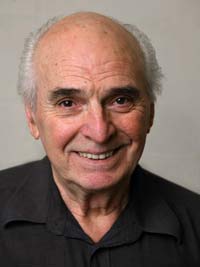 Dr. Les Lavkulich
Dr. Les LavkulichProfessor Emeritus Institute for Resources, Environment, and Sustainability / Faculty of Land and Food Systems, University of British Columbia, Vancouver, BC.
Les Lavkulich’s research activities contribute to advancing an understanding of fundamental soil processes (pedogenesis) as affected by both natural and anthropogenic factors, at both temporal and spatial scales. Of particular interest is the formation of high specific surface materials that are mainly responsible for sorption, retention and release properties of soils for nutrients, contaminants and pollutants. This research contributes to the necessary understanding of natural soil resilience and inherent capabilities to sustain ecological services, including the carbon, nutrient and water cycles. The research provides an index of the natural capacity of soils to absorb anthropogenic effects and provides a comparison point from which to assess the effects of human impacts on terrestrial ecosystems and the capability of the soil resource to sustain ecosystem management. This experience is applied to other natural resource systems, notably the carbon and hydrological cycles. More recently, Les has been involved in international concerns, sponsored by NATO, focusing on “Integrated Water Basin Management”.
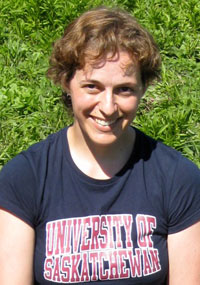 Dr. Angela Bedard-Haughn
Dr. Angela Bedard-HaughnUniversity of Saskatchewan, Saskatoon. Angela Bedard-Haughn was born and raised in the Black soil zone of Saskatchewan.
She completed her Bachelor’s degree in Physical Geography and her Master’s degree in Soil Science at University of Saskatchewan before moving to University of California at Davis for her doctoral studies. In 2006, she returned to the Department of Soil Science to take up a position as Assistant Professor in Applied Pedology, with a research emphasis on how pedologic properties affect, and are affected by, land use and climate change, with particular emphasis on properties related to carbon and nitrogen dynamics. Her teaching and outreach initiatives have included developing and launching a fully on-line course in “Soil Genesis and Classification” as well as coordinating the development of the Soils of Canada website (an initiative of the Pedology Sub-committee of the Canadian Society of Soil Science). She also teaches a very popular course in “Environmental Soil Science” and co-teaches a graduate level course on “Soil Nitrogen in the Environment”. She is a recipient of two teaching awards at the University of Saskatchewan: the College of Agriculture and Bioresources Dean’s Award for Excellence in Teaching (2009) and the Provost’s Award for Outstanding New Teacher (2010).
For more information please visit her web page.
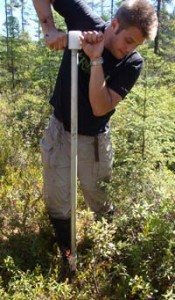 Dr. Nathan Basiliko
Dr. Nathan BasilikoLaurentian University
Nathan Basiliko is Canada Research Chair (CRC) Tier 2 Environmental Microbiology, who transferred from the University of Toronto Mississauga. His research focuses on greenhouse gas, carbon, and nutrient cycles in Ontario peatland and managed forest soils. More information may be found on his website
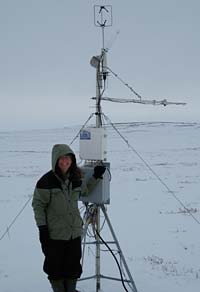 Dr. Elyn Humphreys
Dr. Elyn HumphreysCarleton University, Ottawa.
Elyn Humphreys studies the exchange of carbon dioxide, water vapour, and energy between ecosystems and the atmosphere and the effects of natural and human-induced disturbances on this type of ecosystem function. Her research is currently focused on interactions between climate change and peatland ecosystems in temperate and arctic regions. These ecosystems have vast stores of soil carbon but small changes in climate have the potential to alter the subtle balance between carbon uptake through photosynthesis and loss through respiration.Elyn received her B.Sc. at the University of Guelph in Plant Biology and then went to the University of British Columbia where she completed her M.Sc. and Ph.D with the biometeorology research group in the Faculty of Land and Food Science. Before arriving at Carleton in 2005, she held an NSERC Postdoctoral Fellowship the Dept. of Geography at Trent University.
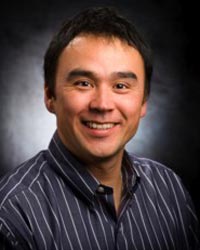 Dr. Gordon Price
Dr. Gordon PriceDalhousie University
Dr. Price’s research program ranges from evaluating composting of slaughterhouse wastes, to examining alternative energy capture systems, management and disposal of Specified Risk Materials (SRM), degradation of resistant proteins in soils and biological systems, and environmental impact of contaminants from organic amendments. Gordon is developing a long-term research program involving the environmental monitoring of organic contaminants in soil and water systems from municipal biosolids.
 Dr. Sue Grayston
Dr. Sue GraystonFaculty of Forestry, University of British Columbia, Vancouver, BC.
Dr. Sue Grayston is a Professor in the Department of Forest Sciences, Faculty of Forestry at UBC, and holds a Canada Research Chair (CRC) in soil microbial ecology. Sue was born in Yorkshire, England and obtained her BSc and PhD in microbiology from the University of Sheffield in the UK, was a post-doctoral fellow at the University of Saskatchewan, a research fellow with MicroBio Rhizogen Corp., an Agricutural Biotech Company, at the NRCs Plant Biotechnology Institute in Saskatoon, then was a principal scientist at the Scottish Governments Macaulay Land Use Research Institute in Aberdeen for 10 years prior to moving to UBC in 2003. Sues’ research focuses on the application of novel molecular and stable isotope probing methods to characterize soil microbial diversity and function in forests on projects related to sustainable forest management, climate change and land reclamation.
 Dr. Shannon Berch (BC Ministry of Environment)
Dr. Shannon Berch (BC Ministry of Environment)BC Ministry of Environment, Victoria, BC.
Shannon Berch works on forest soil conservation, soil biology, and Non-Timber Forest Products (NTFPs), especially edible mycorrhizal mushrooms and the integration of the management of important harvested forest mushrooms, such as the pine mushroom, chanterelles and many others, into forest management. Shannon is a founding member of the Sotu Vancouver Island Mycological Society and also a member of the Truffle Association of BC which is dedicated to the development of a Périgord Black Truffle farm sector in the province.
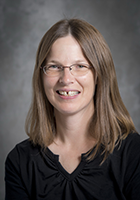 Dr. Margaret Schmidt
Dr. Margaret SchmidtFaculty of Environment, Simon Fraser University, Burnaby, BC.
Margaret is an Associate Professor of Soil Science within the Faculty of Environment at SFU. She has a BSc (University of Guelph) in Agriculture, and an MSc (Lakehead University) and PhD (UBC) in forest soils. Margaret teaches introductory and advanced courses in soil science. Her current research focuses on predictive digital soil modelling and the influence of tree species on nutrient cycling and soils. More information about her research and teaching is available at her website.
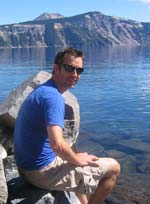 Nick Grant, M.Sc.
Nick Grant, M.Sc.University of British Columbia, Vancouver, BC.
Over the past fifteen years, Nick has worked on problems relating to the global carbon cycle and greenhouse gas emissions as a volunteer, graduate researcher, consultant and scientist. In particular, he has applied leading edge geochemical techniques to the study the production, transport and fate of greenhouse gases produced in marine and terrestrial environments. Nick joined the UBC Biometeorology and Soil Physics Group in 2004 as a researcher where he currently works as a core member of a team of scientists, engineers, and technicians to ensure the continuous operation of eight flux-tower stations as part of the Canadian Carbon Program. Nick holds a B.A.(Hons.) in Natural Sciences from New College of Florida and a M.Sc. in Earth and Ocean Sciences from the University of Victoria.
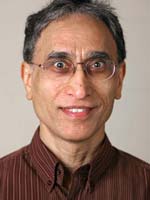 Dr. Rachhpal (Paul) Jassal
Dr. Rachhpal (Paul) JassalUniversity of British Columbia, Vancouver, BC.
Dr. Rachhpal Jassal is a soil scientist with interests in carbon sequestration, greenhouse gas emissions, soil-nutrient-water interactions, and management of problematic soils. He has nearly three-decades of experience in soil science research, teaching and extension, in the UK, Philippines, India and Canada. Since 2002, he has been working as a Research Associate at UBC and is a member of the Canadian Carbon Program. The emphasis of his research is to evaluate the role of environmental variables and forest management on carbon sequestration and soil N2O, CO2, and CH4 emissions, and to understand the partitioning of ecosystem respiration into its above- and below-ground components. Paul is involved in many collaborative studies within and outside BC. He has authored or co-authored more than 80 research papers.
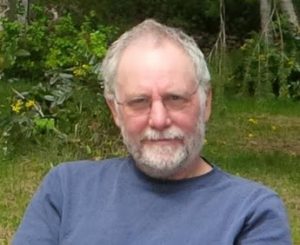 Dr. Chuck Bulmer
Dr. Chuck BulmerBC Ministry of Forests, Lands and Natural Resource Operations
Chuck is a soil scientist who has spent the past 25 years carrying out research in all areas of British Columbia. He has evaluated soil disturbance and the success of rehabilitation efforts on sites disturbed by forestry and oil and gas development. His work on soil physical properties led to improved methods for evaluating soil compaction status, and implications for site productivity. Recent interests include using high resolution air photos to support soil conservation and monitoring, as well as improving BC’s digital soil inventories using GIS technology, and modelling to enhance the use of digital soil datasets in resource planning and operations.
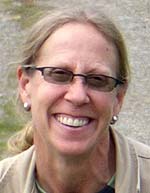 Dr. Sandra Brown, M.Sc.
Dr. Sandra Brown, M.Sc.Faculty of Land and Food Systems, University of British Columbia, Vancouver, BC.
Sandra Brown is a lecturer and research associate in the Faculty of Land and Food Systems. Her academic interests are in the natural and human impacted processes that affect land and water resources available for communities and ecosystems. Her research focuses on land-water-community interactions from a natural sciences perspective, with the goal to link science with decision making, and positively contribute to programs on soils and water resources at multiple scales. Sandra works extensively in land and water resource management in mountain regions both within Canada and Internationally, including Nepal, Bhutan, China, Colombia, Bolivia and Nicaragua.
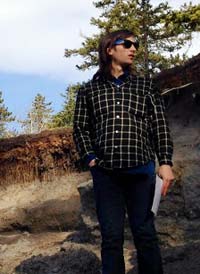 Darrell Hoffman, M.Sc.
Darrell Hoffman, M.Sc.Faculty of Land and Food Systems, University of British Columbia, Vancouver, BC.
Darrell’s first experiences with soil science occurred in the Introductory Soil Science course during his undergraduate degree in Environmental Science at Simon Fraser University. Interested in the relationships between the visual and tactile indicators in soil profiles and the underlying properties and processes, Darrell followed up by taking more soil courses, working in the SFU soil lab for two summers and entering UBC in in fall 2013 to work towards a Masters of Soil Science. Combining his interest in forest soils and natural science education, Darrell began working with Maja Krzic to develop a web-based learning tool focused on humus form description and classification.
 Dr. Jason Barker
Dr. Jason BarkerFaculty of Forestry, University of British Columbia, Vancouver, BC.
Dr. Jason Barker is an ecosystem ecologist, with eclectic academic background, ranging from a B.A. in Asian Studies (Towson University) to a Ph.D. in Forest Sciences (UBC). His research focuses on the role that microbes, especially fungi, have in influencing biochemical cycles and ecosystem recovery after disturbances (wildfire e.g.). His larger research interests are in biogeochemistry, untangling the relationship between biodiversity and ecosystem functioning, and synthesis. When not trying to unravel the complexities of ecosystems at work, he enjoys experiencing the mysteries of nature firsthand.
 Emma Holmes, MSc.
Emma Holmes, MSc.Faculty of Land and Food Systems, University of British Columbia, Vancouver, BC.
Upon completion of her undergraduate degree in the Global Resource Systems Program, Emma enrolled in the Soil Science Graduate Program at UBC. Emma developed an interest in soil science after spending a summer as a farm apprentice on Saltspring Island, and became further hooked after taking APBI 200 and APBI 402. Emma received an NSERC Undergraduate Student Research Award for the summer of 2009, and worked with the Soil, Water, Air Lab research group at UBC under supervision of Dr. Les Lavkulich.
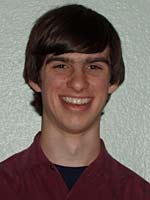 Cory Wallace, BSc. (Former Student)
Cory Wallace, BSc. (Former Student)Faculty of Forestry, University of British Columbia, Vancouver, BC. Cory is currently pursuing a bachelors degree in forest sciences. His interest in soil science was first sparked while taking SOIL 200 in 2009. He continues his study of soil in FRST 201 and 211 and is especially interested in how mycorrhizal fungi assist plants in nutrient uptake from the soil.
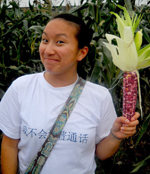 Katina Tam
Katina TamFaculty of Land and Food Systems, University of British Columbia, Vancouver, BC.
Katina was an undergraduate student in the Global Resource Systems Program, focusing her studies on nutrition and sustainable agriculture. Her interest in soil science was first sparked in a soils analysis project at the UBC Farm in APBI 260, which prompted her to take APBI 200. She completed her final year of studies on exchange at the Swedish Agricultural University (SLU), where she took advanced level courses in agricultural sciences.
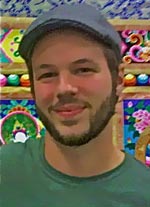 Jeff Liebert, MSc. (Former Student)
Jeff Liebert, MSc. (Former Student)Faculty of Land and Food Systems, University of British Columbia, Vancouver, BC.
Jeff was pursuing an undergraduate degree in the Global Resource Systems Program, with a specialization in sustainable agriculture. While farming in a peat bog on a remote island in Alaska, soil amendments were foraged and an interest in soil science was forged. Having completed a PRSSS soil identification course and SOIL 200, Jeff is excited to be working on numerous soil-focused projects, including land reclamation on the Sunshine Coast and permaculture in the Downtown Eastside.
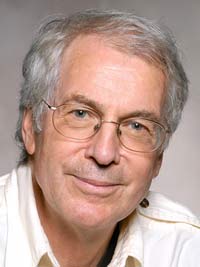 Dr. Hans Schreiber, Professor Emeritus
Dr. Hans Schreiber, Professor EmeritusInstitute for Resources, Environment, and Sustainability / Faculty of Land and Food Systems, University of British Columbia, Vancouver, BC.
Hans Schreiber’s research focuses on watershed management, land-water interactions, non-point sources of pollution in urban and agricultural areas, stormwater management, water needs for food production, and climate change adaptation strategies. He has worked extensively in the Himalayan and Andean Region of the world and in the mountains of British Columbia.
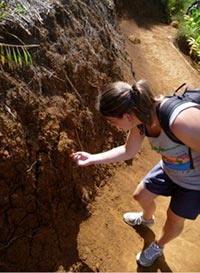 Dru Yates, MSc.
Dru Yates, MSc.Faculty of Land and Food Systems, University of British Columbia, Vancouver, BC.
I was first exposed to soils in my undergraduate degree, where I learned in some Agroecology courses about how important healthy soil is to healthy agriculture. I then decided to take APBI 200, and the rest is history! The more I learn, the more I find soil to be one of the world’s most undervalued resources. I am currently doing my Masters in Soil Science, working in collaboration with the Delta Farmland and Wildlife Trust to study the management of grassland set-asides in the Lower Fraser Valley, and the subsequent impacts on soil quality (for more info about these local environmental stewardship programs, check out: www.deltafarmland.ca). My intentions are to combine my interests in soil, agriculture, ecological service programs, and community-based research.As a self-professed “soil nerd”, I also love participating in as many soil-related field trips, classification courses, workshops, and other gatherings as I can. So, if you are interested in getting more involved in the soils community…let me know!
Content Developers
 Chris Crowley, MET
Chris Crowley, METCentre for Teaching, Learning and Technology, University of British Columbia, Vancouver, BC
Chris is an Instructional Designer/Project Manager for UBC’s Centre for Teaching, Learning and Technology. He is involved in the design, development and delivery of online courses and learning resources in a number of subject areas including Soil Science. At UBC, he has also produced and directed some award-winning video productions for the online resources and courses. Chris has a background in agricultural science, film and television studies and educational technology. In his spare time, usually he can be found playing or coaching soccer.
 Saeed Dyanatkar
Saeed DyanatkarExecutive Producer, UBC Studios
University of British Columbia, Vancouver, BC. Communicating science is Saeed’s passion. he is a digital producer at UBC with a diverse background in engineering, photography, film-making and information technology. Saeed co-founded the newindow.org, an initiative to promote media literacy and he also helps publish The Source/La Source newspaper as the associate publisher, digital.
Web Developer
Nathan Sidles is a web developer who has assisted the migration of SoilWeb to its new address.
 Rachel Strivelli, M.Sc.
Rachel Strivelli, M.Sc.University of British Columbia, Vancouver, BC.
Rachel Strivelli has worked with Maja Krzic and this amazing team to create numerous innovative university-level teaching tools, beginning with the Land Use Impacts tool. Prior to her time at UBC, Rachel Strivelli spent four years teaching in public schools, grades 7-11. She loved being innovative with teaching, and did so by incorporating technology, multimedia, experiential activities, and environmental education into the classroom. In addition to teaching, she was an environmental educator working for several farms and experiential environmental education centers in North Carolina, New Hampshire, and Ohio.
Rachel combines her innovative ideas, knowledge and skills to inspire, educate, and motivate individuals and groups to learn and act in ways that contribute to the betterment of humanity and stewardship of the natural world. She currently works on a contract basis, doing education, outreach, and communications in the environmental and agricultural sectors.
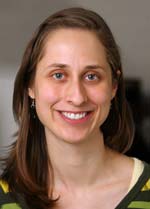 Trudy Naugler, M.Sc.
Trudy Naugler, M.Sc.University of British Columbia, Vancouver, BC.
Trudy is a research technician in the Faculty of Land and Food Systems at UBC. She has been involved in several roles and projects while working in the Soil Water Air Laboratory, most of which have included lots of soil analysis. She has enjoyed the chance to learn more about video and websites during the development of this Virtual Soil Lab tool. Trudy holds a degree in agricultural chemistry from the Nova Scotia Agricultural College, and is a graduate of the Resource Management and Environmental Studies (RMES) program at UBC.
Dr. Kelleen Wiseman, Instructor
Faculty of Land and Food Systems, University of British Columbia, Vancouver, BC
Kelleen teaches business economics and strategy at the graduate and undergraduate level with UBC. Her research interests include the economics of food quality, role of regulation in supporting health communication and food manufacturers’ response to consumer demand for healthier products. In addition, Kelleen has over 15 years of business management experience in the Canadian and Californian food business sector with firms such as Oracle Corporation, Santa Clara Retail Management Institute, BC Ministry of Agriculture and Lands, Farm Credit Canada and the Canadian Farm Business Management Council.
 Gabriel Lascu
Gabriel LascuCentre for Teaching, Learning and Technology. University of British Columbia, Vancouver, BC. Gabriel is the coordinator for web/multimedia/ graphic design in the Centre for teaching, Learning and technology at UBC. He provides project management, leadership, and production expertise in the design and preparation of educational content for the distance courses (illustrations, complex imagery, advanced photo retouching, animated processes for multimedia and web, corporate and promotional materials and directs photo shoots). Gabriel has a background in Fine Arts, Graphic Design, Multimedia, Computer Aided Design, Desktop Publishing and Engineering. He’s very passionate about Photography, Digiscoping and Interior Design.
University of British Columbia, Vancouver, BC
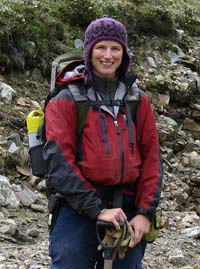 Lesley Dampier
Lesley DampierLesley began working with Maja Krzic and this diverse team on SoilWeb in 2003. She later spent four years working in environmental consulting, putting her soil science education to work primarily on projects related to land reclamation and residuals recycling. In 2010 she completed a M.Sc. in Natural Resources and Environmental Studies at UNBC; her thesis focussed on soil genesis in relation to glacial history in the central Yukon. She is looking forward to expanding her knowledge and exploring more opportunities in soil science education.
 Melissa Iverson
Melissa Iverson
Melissa is a soil scientist, with interests in urban agriculture advocacy and capacity-building, soils education, and soil mapping. She attended the University of British Columbia, where she earned an honours degree (B.Sc.) from the faculty of Land and Food Systems (Global Resource Systems program) and a Master’s degree (M.Sc.) in Soil Science. Her Master’s degree research examined site and soil assessment methods for urban brownfields being reclaimed into food-producing community gardens.
Over the past five years Melissa has worked in both the private and the public sectors on many soils-related studies and has also collaborated on local and nation-wide soil mapping projects. She is a co-creator of the first and only soil map for the city of Vancouver, B.C. and has been working with geomatic specialists at Agriculture and Agri-Food Canada to assess and update Canada’s national soil map, The Soil Landscapes of Canada. She is currently working as a Soil Scientist with the Integral Ecology Group.
 Sepand Dyanatkar
Sepand Dyanatkar
Sepand is an undergraduate student studying Computer Science and Physics. He is currently taking courses along the topics of Software Engineering and Computational Physics. He has worked as a student developer to help revamp the VSSLR soil science sites under SoilWeb.ca and is further pursuing internships and development positions. He’s also a big fan of backpacking and Track running, as well as shredding the slopes (skiing).
Special Thanks to
- Dr. Tim Ballard, UBC
- Dr. Andy Black, UBC
- Mark Bomford, UBC
- Dr. Christine Cross, Trinity Western University
- Alan Doree (Simon Fraser University)
- Dr. David Gaumont-Guay, Vancouver Island University
- Martin Hilmer, UBC
- Andrew Hum, UBC
- Andy Jakoy, British Columbia Institute of Technology
- Dr. Maureen Kent, UBC
- Jim Mulleder, UBC
- Paula Parkinson, UBC
- David Poon (PRSSS)
- Dr. Charlie Rowles, UBC
- Dr. Al van Ryswyk, Agriculture and Agri-Food Canada
- Dr. Yihai (Simon) Zhao, UBC
- Edmund Seow, UBC
- Ethan Perriccioli, UBC
- Trevor van Hemert (Fernwood Web Design)
- Novak Rogic, CTLT, UBC
- Will Engle, CTLT, UBC
- Tom Scott, UBC Studios, UBC